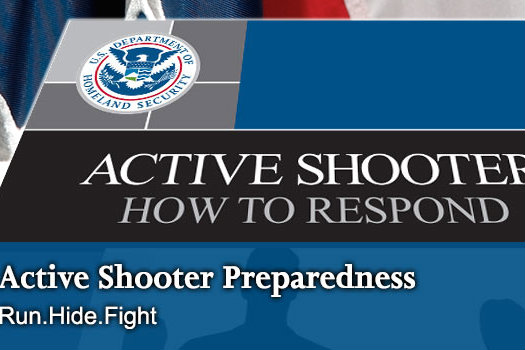Given some of the horrific incidents making headlines recently, security is becoming a bigger concern at any venue that attracts large crowds.
The U.S. Department of Homeland Security is well aware of this reality and its implications for waterparks and amusement parks. For this reason, it has reached out to the industry to spread awareness of its message and resources.
“Security is important, regardless of the size of the venue,” said Daniel Abreu, branch chief of the Office of Infrastructure Protection, a sector of the DHS. “Security is scalable… so it depends on the type of facility and type of funding. But no matter what, there are some basic principles that every organization can take and should take.”
Representatives have attended trade shows, such as the recent World Waterpark Association Show in West Palm Beach, Fla. “There are a couple conferences that we’ve attended recently, where there were thousands of amusement industry members from various countries worldwide who operate these amusement parks, etc.,” Abreu said. “So the goal is to really get the concept of security considered.”
The Office of Infrastructure Protection offers a variety of resources to help operators secure their waterparks as much as possible:
· Commercial Facilities Sector resources: The federal agency has identified 16 types of environments that each has its own specific set of security needs. Waterparks and amusement parks fall under the Commercial Facilities Sector. On the web page serving that category, operators can find a security plan meant for the needs of these spaces, as well as a resources page that includes videos, web- and classroom-based training courses, information about how to prepare for an active shooter incident, a tool for reporting suspicious activity, and various publications outlining best practices, planning and protective measures.
· Protective Security Advisor Program: Through this program, the federal agency works with local security experts throughout the country to help public officials and members of the private sector. They help conduct vulnerability assessments and training, provide security briefings, and offer security advice more tailored to a property.
· Hometown Security Initiative: This program promotes an easy-to-remember, four-pronged approach to security – Connect, plan, train and report. Connect includes initiating and building a relationship with local law enforcement; Plan means to develop emergency action plans appropriate to the facility; Training involves preparing staff to carry out the plans; Reporting refers to learning how to detect suspicious behavior and report it to local law enforcement or security personnel.
· Active Shooter Preparedness Program: Operators can receive online and in-person training to help prepare and implement emergency action plans tailored for an active shooter incident. The training, videos and fact sheets have been translated into nine languages.
· Counter-UAS materials: A fact sheet, video and laminated card explain the potential threats of unmanned aircraft systems and measures a facility can take.
· Office for Bombing Prevention: These specialists offer in-person training and online resources to help staffs prevent, respond and mitigate incidents involving explosive devices.
· The Safety Act Program: Companies or facilities that provide or utilize certain anti-terrorism technologies can receive protection of liability limits should an incident occur.



